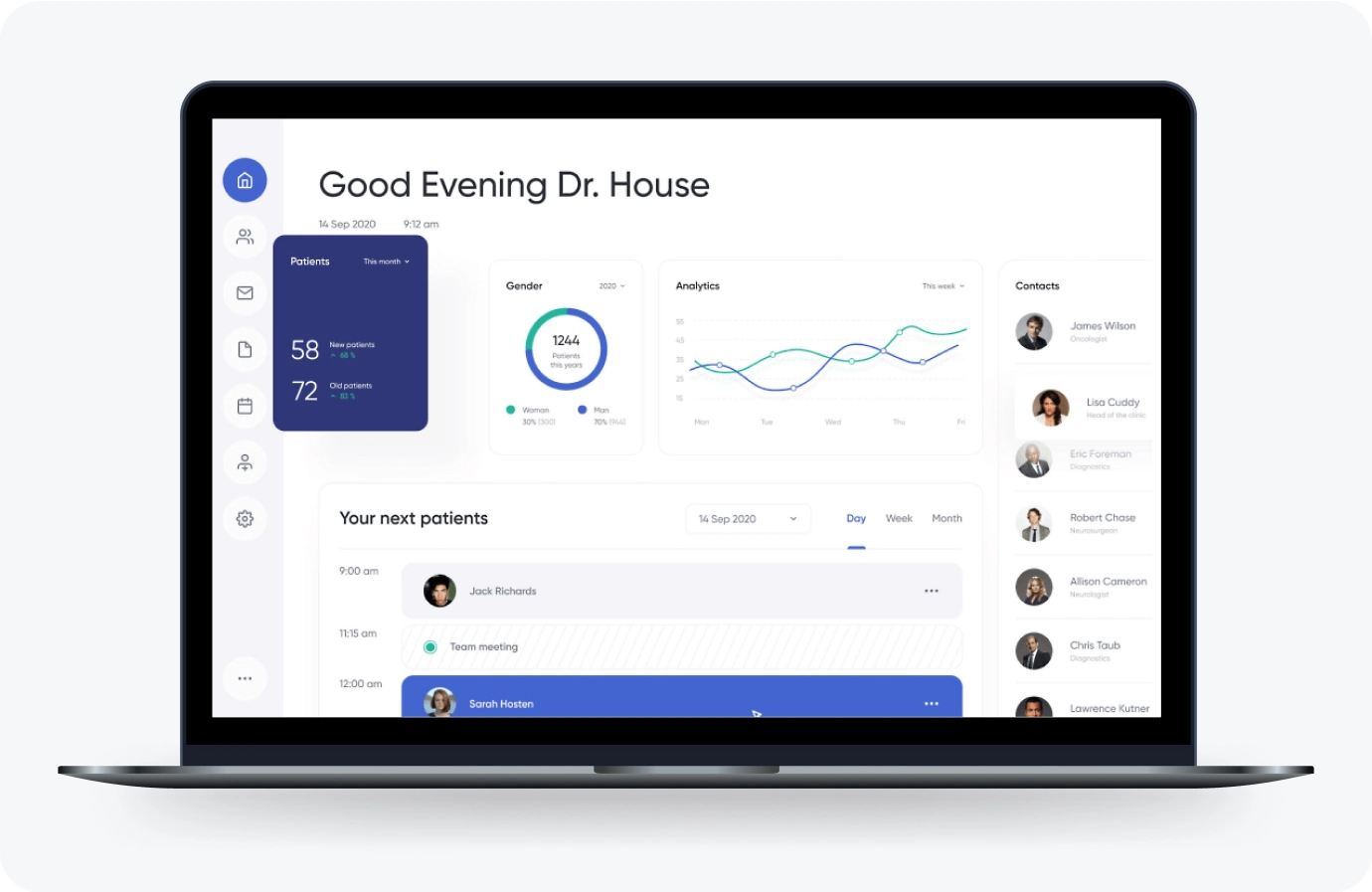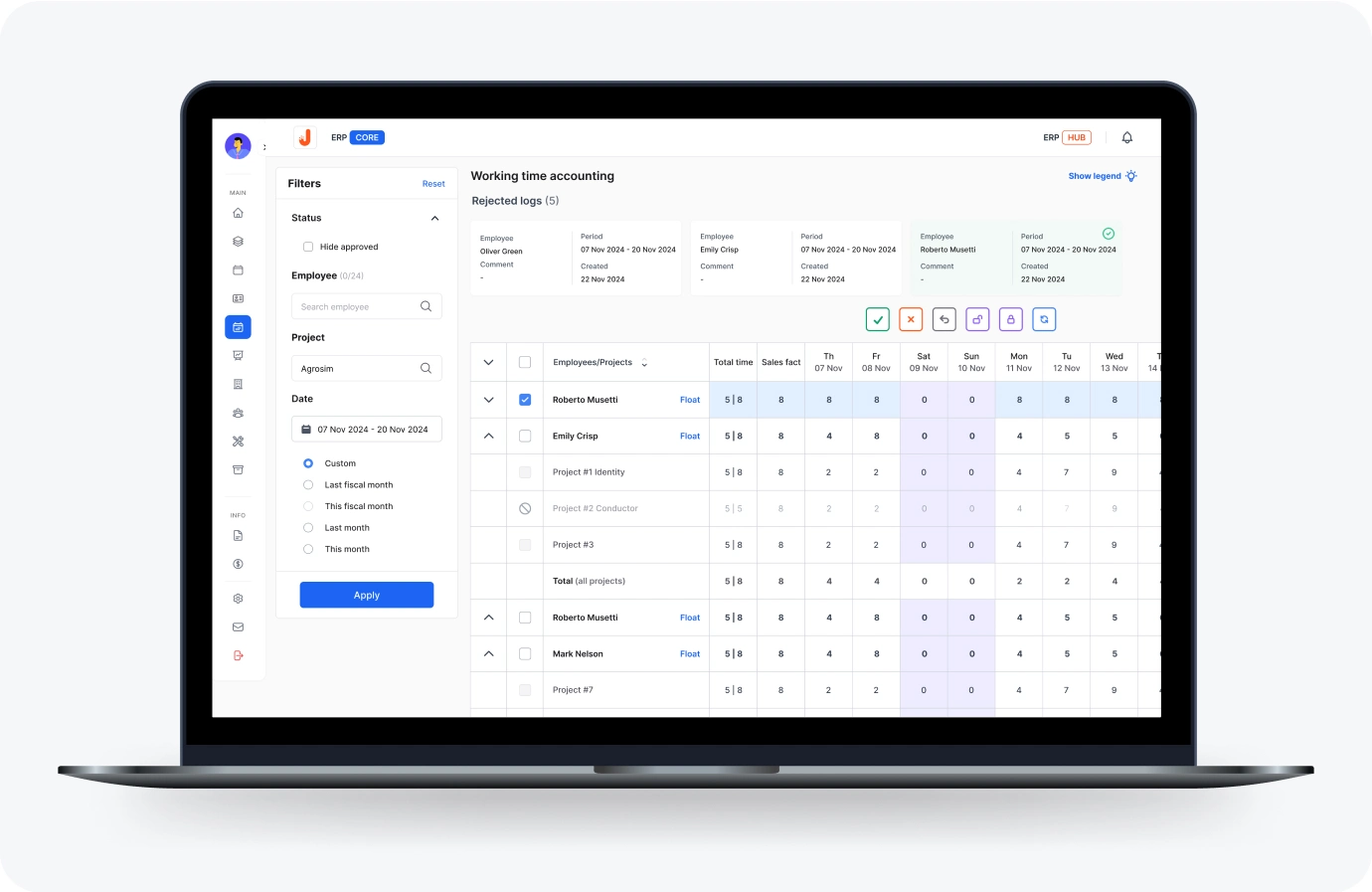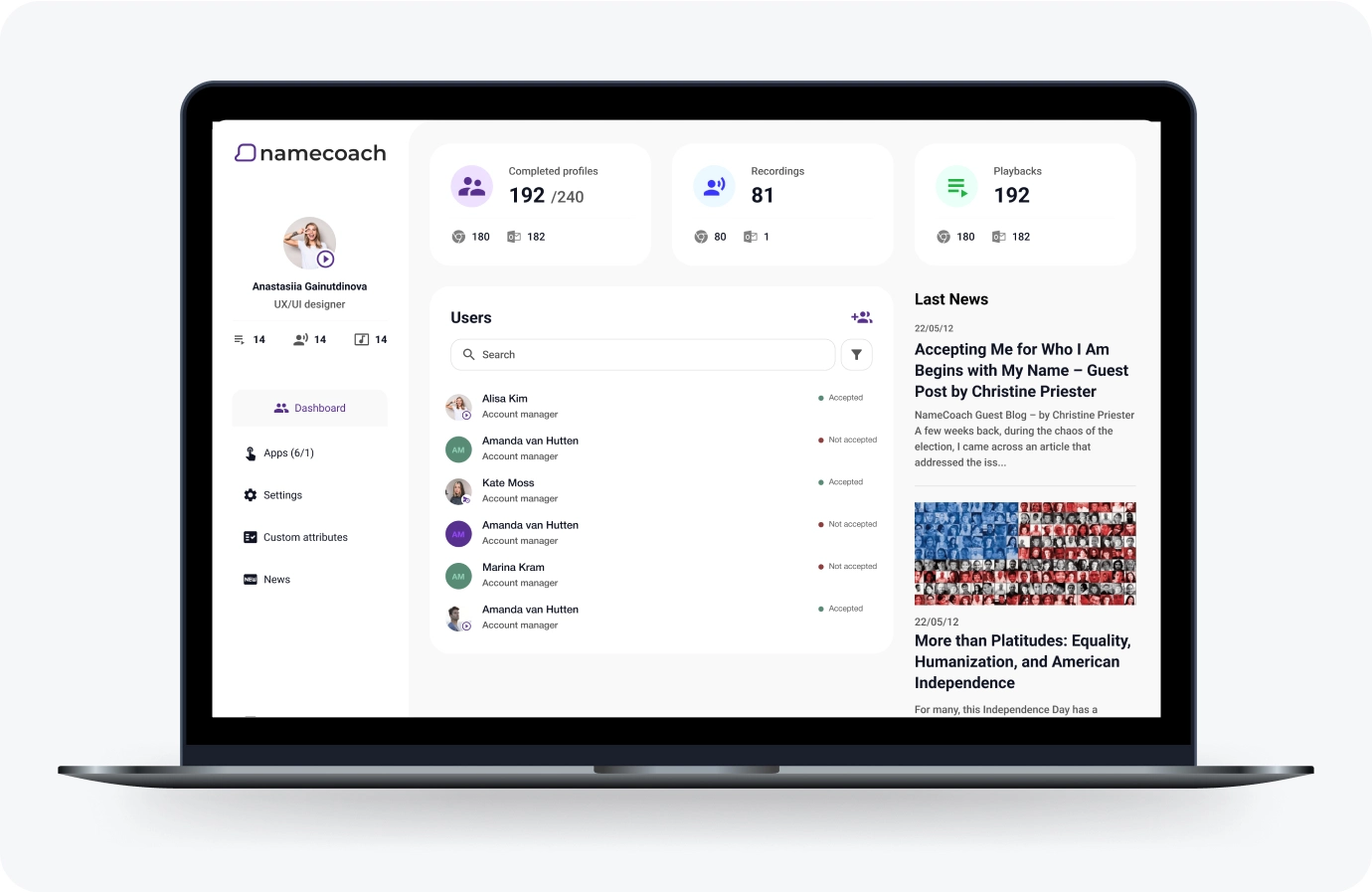Why Is Ruby Still Used for Product Development and What Is It Good For?
Is Ruby still used? It is thriving now and beyond! Discover why it remains fast, secure, and ideal for building scalable, innovative web applications.

Table of Contents
You opt for the right tools for product development but feel overwhelmed. No wonder, with so many frameworks and languages emerging.
You might ask: “Is Ruby on Rails dead?”
The short answer is no. Not only is Ruby on Rails alive in 2024, but it continues to thrive, and for good reason.
Ruby on Rails (RoR) and Ruby consistently rank among the top-paying technologies worldwide, so it’s clear that Rails has left a lasting mark on the software development landscape.
If you’re unsure about its strengths, challenges, or whether it fits your needs, this article explains everything in simple, clear terms. By the end, you’ll know exactly why Ruby on Rails (RoR) remains a smart choice for building fast, secure, and scalable web applications.
Is Ruby Still Used Today? Rails 8.0 Sets the Standard
Ruby technology keeps evolving to stay modern and useful. The release of Rails 8.0 proves this point, offering tools that solve performance, deployment, and integration problems.
Here’s what makes Rails 8.0 special.
Seamless Deployment with Kamal 2 and Thruster Proxy
Kamal 2 simplifies deployment (launching an application online). With just one command, you can set up your Ruby application on cloud servers or your own infrastructure.
Kamal removes unnecessary complexity, enabling fast scaling without extensive manual configurations.
Performance Boost with Thruster Proxy
Rails 8.0 also introduces Thruster Proxy, which works directly with the Puma web server. This eliminates the need for external servers like Nginx and improves performance with asset compression and caching features.
Business Benefits of the Thruster Proxy Update
- It reduces costs by eliminating extra servers like Nginx.
- Faster load times improve user experience and customer retention.
- Asset compression and caching speed up processes.
- It makes server maintenance easier and less complex.
- Allows your business to support more users without extra costs.
- Faster speeds can boost your search engine rankings and attract more visitors.
- Fewer server needs and better performance lower maintenance expenses.
Reduced Dependencies with Solid Adapters
Solid Adapters (a set of tools) replace third-party systems like Redis and Memcached, which are often expensive. These tools reduce costs, simplify operations, and make Rails more accessible for startups and businesses.
Here’s what they include:
- Solid Cable: Manages messaging between app users using SQLite.
- Solid Cache: Provides fast, encrypted data caching on the disk.
- Solid Queue: Handles job queues with native retry features.
Modern Asset Management with Propshaft
Rails now uses Propshaft instead of Sprockets for managing assets (images, JavaScript files, etc.). It integrates smoothly with tools like bun and esbuild to make builds faster and easier to manage.
Business Benefits of Updating to Propshaft for Asset Management:
- Propshaft speeds up asset builds, allowing faster feature releases.
- Improved asset handling enhances application speed and user experience.
- It works well with tools like Bun and Esbuild for better efficiency.
- Simplified asset management reduces complexity and lowers maintenance costs.
- Enhanced asset management supports business growth by handling more traffic and complexity.
Better Security and Compliance
Rails 8.0 focuses on security, introducing an authentication generator to help developers set up secure user logins in Ruby applications. It also integrates with tools like 1Password and Bitwarden to ensure that apps like GDPR and CCPA meet privacy standards.
Together, these Ruby features make Rails 8.0 a leap forward. It improves speed, security, and developer experience — key reasons businesses trust Rails.
Who uses Ruby? (Real-World Applications of Ruby on Rails)
You might ask, “What is Ruby on Rails good for?”
It powers platforms you likely use every day. Companies trust it because it builds reliable and scalable systems quickly.
- GitHub: Rails is the backbone of the world’s largest code collaboration platform, supporting over 100 million developers.
- Shopify: Shopify uses Rails to power e-commerce stores for 4 million businesses worldwide.
- Airbnb: Rails ensures millions of travelers a seamless and reliable booking experience.
- Twitch: Streaming massive volumes of real-time video data requires Rails’ scalable and robust architecture.
- Dribble and Basecamp: Rails excels at building dynamic, user-friendly applications, from creative portfolios to project management tools.
Ruby on Rails usage goes beyond the above-mentioned companies: Groupon, Coinbase, GitLab, Zendesk, Etsy, Crunchbase, Ask.fm, Fab, and many other well-known firms began their journeys with Ruby on Rails technology.
The main advantages of Ruby on Rails in web development
If you’re wondering why companies of all sizes choose Rails, here’s a breakdown of the main reasons why Ruby on Rails popularity is high:
Fast Development
Ruby on Rails focuses on speed without sacrificing quality. Its principles, Convention over Configuration (CoC) and Don’t Repeat Yourself (DRY), eliminate unnecessary steps during development.
Instead of writing repetitive code, developers can focus on building the core features of your product.
With over 187,000 ready-made solutions called gems, Rails allows developers to add features like payment processing, user authentication, or file uploads without starting from scratch.
This helps businesses build and launch products quickly. It’s especially vital for startups that need a Minimum Viable Product (MVP) to test their ideas or for enterprises working on tight deadlines.
High Security Level
Security is non-negotiable for any business. Ruby on Rails comes with built-in protections against major security threats:
- Cross-Site Scripting (XSS)
- SQL Injection
- Cross-Site Request Forgery (CSRF)
- Clickjacking
These Ruby features reduce risks and help businesses comply with security standards like GDPR and CCPA.
Clear Syntax (Developer-Friendly Syntax)
Ruby on Rails uses clean, simple code that developers love. As The Rails Doctrine outlines, one of its main pillars is “programmer happiness.” Thus, Rails makes developers’ work smoother and more enjoyable.
The syntax reads almost like plain English, so developers can tackle complex tasks without writing endless lines of code. This clarity also makes onboarding new developers easier since the structure is easy to follow and maintain.
Strong Community
Since 2003, Ruby on Rails has been supported by a vibrant and passionate global community. Thousands of developers continuously introduce new enhancements to ensure the framework stays up-to-date with new technologies and best practices.
- Issues get addressed quickly.
- New features are regularly introduced.
- Countless tutorials, guides, and forums make it easy to find help when needed.
For businesses, this means faster solutions, fewer bugs, and reliable support from the Rails community whenever challenges arise.
Easy Implementation of Business Logic
With its Model-View-Controller (MVC) architecture, Rails makes it simple to integrate even the most complex business logic into applications. Developers can manage workflows, handle transactions, and build custom features that align perfectly with your goals.
For example, businesses can seamlessly integrate APIs, automate tasks, or manage multi-step operations without unnecessary hassle.
AI and Machine Learning Integration
Ruby on Rails integrates seamlessly with Artificial Intelligence (AI) and Machine Learning (ML) projects. Rails supports tools for:
- Predictive analytics to identify trends and behaviors
- Chatbots to improve customer service
- Personalized user experiences based on data insights
Using AI-focused gems like ai4r, Rails makes it easier to bring intelligence and automation into web applications, keeping up with modern technological trends.
Compatibility with Other Technologies
Ruby on Rails integrates well with popular frontend tools like React, Vue.js, and Angular, making it easy to create dynamic user interfaces.
Rails also works smoothly with various APIs, mobile backends, and other third-party tools to support complex workflows.
This compatibility allows businesses to choose the best tools for their needs without facing integration issues.
Gems Ecosystem
The gems ecosystem is one of Rails’ greatest strengths. With over 170,000 gems available, developers can easily add features to Ruby applications. Whether you need payment gateways, file uploads, or advanced AI tools, there’s likely a gem that solves your problem.
This vast library of pre-built solutions saves time and money since you don’t have to build functionalities from scratch.
Scalability
Businesses that expect growth need a framework that scales with them. Rails effortlessly handles high traffic and complex applications. Tools like Kamal and Solid Adapters ensure Rails apps can manage increasing demand without sacrificing performance.
Companies like Shopify and Twitch prove that Rails can handle millions of users and transactions daily.
Continuous Improvement
Major updates like Rails 8.0 introduce new tools and performance enhancements to keep it modern and efficient.
This commitment to improvement ensures businesses can rely on Rails for long-term projects without worrying about falling behind.
Database Support
Rails simplifies database management through Active Record, a built-in Object-Relational Mapping (ORM) tool. Active Record allows developers to interact with databases using straightforward commands rather than complex SQL queries.
Whether using MySQL, PostgreSQL, or SQLite, Rails makes database operations smooth and intuitive.
Business Benefits of Rails Database Support Update:
- Simplified database interactions with Active Record ORM, reducing the need for complex SQL.
- Speeding up tasks, helping you launch features faster.
- MySQL, PostgreSQL, and SQLite support allow businesses to choose the right database.
- Reduced complex query writing, letting developers focus on key business functions.
- Accelerated development potentially lowers project costs. Easily scales database operations as your business grows.
Simple Testing Tools
Rails has built-in testing tools that help developers check code quality and ensure features work as expected. The included Minitest framework makes writing and running tests simple.
With testing tools embedded into the framework, businesses can release updates confidently, knowing the code is reliable and bug-free.
Extensive Documentation
Rails has some of the most thorough and user-friendly documentation available. Developers can find clear explanations, examples, and guides for every part of the framework.
Whether you’re a beginner or an experienced programmer, the documentation makes it easy to understand and apply Rails’ features.
What is Ruby on Rails used for?
Why use Ruby on Rails?
Well, because Rails goes beyond basic web applications. Here’s what Rails can help you build:
Web Applications
Rails is perfect for creating dynamic and user-friendly web applications. Its Model-View-Controller (MVC) architecture ensures that even complex apps are easy to manage and scale.
From social networks and online marketplaces to business management tools, Rails delivers seamless and engaging user experiences.
For startups, Rails is especially valuable. It allows you to quickly build a Minimum Viable Product (MVP) to test ideas, gather feedback, and adapt without wasting time or money.
eCommerce Solutions
Rails proved to be a powerful framework for building successful eCommerce platforms.
Businesses like Shopify rely on Rails to manage high-volume transactions, flexible pricing, and inventory systems. Beyond simple online stores, Rails can handle:
- Customer Relationship Management (CRM)
- Secure payment gateways
- Marketing tools
- Inventory management systems
This flexibility makes Rails the go-to choice for companies looking to create scalable and feature-rich eCommerce solutions.
Events
Organizing an event, whether a small birthday party or a large international conference, can feel overwhelming. Ruby on Rails simplifies this process, making your event run smoothly from start to finish.
- With Ruby on Rails, you can set up a secure online platform where attendees can effortlessly purchase tickets. RoR ensures that transactions are safe and helps you track all ticket sales so you know exactly who’s coming.
- Consider a system where guests can easily sign up, create their own profiles, and access all the necessary information about the event. This personal touch makes attendees feel welcome and informed.
- Sometimes, plans change at the last minute, like a speaker canceling. With Ruby on Rails technology stack, you can instantly send notifications to everyone, keeping them updated and reducing potential confusion.
Ruby on Rails takes the stress out of event planning by providing tools that handle the details, allowing you to focus on creating memorable experiences for your guests.
Healthcare
Healthcare is all about caring for people, and Ruby on Rails helps build systems that make this care more efficient and secure. Let’s explore how it supports both doctors and patients.
- Ruby on Rails technology ensures that all patient details, such as medical history and treatment plans, are easily accessible to doctors and safe and organized, so healthcare providers have everything they need at their fingertips.
- With Rails, you can build a user-friendly system where patients can book, change, or cancel their appointments online without any hassle. This convenience reduces wait times and makes managing visits much easier for everyone involved.
- Picture patients having video calls with their doctors from the comfort of their homes. Ruby on Rails makes these virtual consultations possible and ensures medical advice is just a click away.
- Thanks to Ruby on Rails, Patient Portals, where patients can log in to view their test results, check their medical information, and communicate directly with their healthcare team, are a reality.
JetRuby team developed a healthcare management platform that now allows a number of private hospitals to schedule their patients’ appointments for free, with some additional advanced features available at a premium.
HRTech and ERP platforms
Managing a team and handling HR tasks can be complex, but Ruby on Rails simplifies it. Let’s see how it supports HR departments in their everyday work.
Imagine a centralized platform built with Ruby for companies to list job openings and manage candidates’ applications in one place. A platform like this streamlines the hiring process and makes it easier to find the right talent.
It’s a system that records each employee’s role, performance, and onboarding process.
Ruby on Rails makes this platform concept a reality and ensures that all this information is organized and easily accessible, helping HR teams manage their workforce effectively.
- With Ruby, one can build an automated system that calculates salaries, manages taxes, and handles direct deposits accurately. As a result — reduced errors and employees are paid on time without any manual intervention.
- Ruby on Rails makes managing employee benefits straightforward and transparent. Detailed reports on employee satisfaction and retention rates help businesses make informed decisions to improve their workplace environment and retain top talent.
- Ruby on Rails transforms HR operations by providing tools that automate and simplify complex tasks. This allows HR professionals to focus on what truly matters: the people they work with.
As for ERP systems, we at JetRuby developed an outstanding one that has transformed daily operations, improved teamwork, and simplified complex business tasks.
- Over 200 employees use our ERP system every day.
- A dedicated team of more than 20 engineers, testers, and analysts continually improves it with new features.
- We have over 15 years of experience in managing people and projects.
Food Delivery
Ordering food should be a delightful and seamless experience, and Ruby on Rails helps make that happen. Let’s explore how it enhances the online food delivery process.
- Ruby on Rails ensures that all information in restaurant menus is displayed clearly, helping you choose exactly what you’re craving.
- It helps to organize all orders so the food gets to you quickly and correctly.
- Built on Ruby on Rails, food delivery services can be sure that all payment transactions are safe and smooth, giving clients peace of mind when they pay.
- With Ruby on Rails, one can build a delivery service that plans the best routes for drivers and tracks their progress. This ensures that the food arrives promptly and in perfect condition.
- Receiving real-time updates about the order status, such as when it’s being prepared, out for delivery, or has arrived, becomes a reality with Ruby on Rails. This keeps clients informed and reduces any anxiety about the meal’s arrival.
We at Jetruby are proud to have expertise in the field, bringing several food delivery services to life. Saffron Cooks, an app for premium food delivery service bringing a restaurant-like dining experience, is on the list.
Fintech Applications
Security and reliability are essential for financial technology, and Rails is designed to meet those needs because it has good security features that protect against threats like SQL injection and XSS.
Its “convention over configuration” approach makes code reliable and easy to maintain, which reduces errors.
The Rails community regularly updates the framework to keep applications secure. Rails also includes testing tools to ensure applications work correctly and can handle high traffic.
Businesses use Rails to build secure platforms for:
- Fraud detection systems
- Transaction processing
- Financial trend forecasting
The built-in security features in Rails protect sensitive data, ensure compliance with financial regulations, and reduce the risk of breaches.
Our team created a fast and easy-to-use mobile app that saves users time and reduces stress during nights out. The app helps bar owners enhance their service, giving customers a modern experience.
With NFC Moments, you can skip long pub lines and avoid slow payment processes.
EdTech Platforms
Rails is a strong choice for educational technology. It helps create Learning Management Systems (LMS) and other tools that automate teacher tasks and improve student learning experiences.
Ruby gems ecosystem offers numerous plugins for features like user authentication, payment processing, interactive content, and more, reducing the need to build functionalities from scratch.
The analytics and reporting features help monitor student performance and educational outcomes.
Rails-powered platforms can offer:
- Admin tools to reduce manual work for educators
- Interactive dashboards for students and teachers
- Secure, user-friendly features to enhance education workflows
JetRuby team has been teaming up with “NameCoach” for almost three years to enhance, model, and advance the platform, that helps prevent social discomfort when names are mispronounced in important situations.
Back-end development for Mobile Applications
While languages like Swift and Kotlin dominate mobile app development, Rails is excellent for building the back end of mobile apps. It ensures smooth communication between mobile devices and servers and manages data requests securely and efficiently.
This makes Rails a reliable partner for businesses looking to connect their mobile applications to a powerful server-side infrastructure.
Static Site Generators
Rails and Ruby have long supported static site generators, which are lightweight, fast, and secure. Tools like Jekyll, built on Ruby, have been trusted solutions for over a decade. They offer simple yet powerful sites ideal for blogs, portfolios, and documentation.
Automation and DevOps
Ruby on Rails plays a key role in automation and DevOps tasks, making it easier for businesses to manage their infrastructure. It allows developers to create simple scripts for deployments and database changes.
Tools like Heroku, Vagrant, Chef, and Puppet use Ruby to:
- Automate application installation and deployment
- Streamline system configuration
- Simplify maintenance of cloud infrastructure
For businesses focused on efficiency, Rails delivers powerful tools to save time and resources.
Data Processing and Web Scraping
Rails is also effective for data processing, cleaning, transforming, and validating data for analysis. While Python is often used for parsing and analyzing data, Rails complements it and efficiently handles preparatory tasks.
Additionally, Rails can perform web scraping for research and competitive analysis, extracting large amounts of data in an organized manner for further use.
Ruby on Rails vs. Competing Technologies
The choice of technology stack is a critical factor in any project. First of all, it impacts development speed, security, scalability, and cost. We will compare Ruby on Rails to Node.js, Python (Django), PHP, and Java.
The table below lays out the advantages and disadvantages of each option, providing a practical guide for you to make a decision that aligns with your project’s needs and budget.
| Fast: Ready-to-use gems and DRY principles. | Moderate: Fast for I/O-heavy apps. | Moderate: Clean, structured framework. | Slower: Requires more manual setup. | Slower: Lengthy development cycles. | |
| High: Built-in XSS, CSRF, and SQL protections. | Moderate: Relies on third-party libraries. | Strong: Robust security features. | Limited: Dependent on best practices. | High: Enterprise-grade security. | |
| Strong: 6838 contributors, active updates. | Strong: Large JavaScript community | Strong: Backed by Python ecosystem. | Moderate: Established but less active. | Strong: Long-standing enterprise support. | |
| High: Rapid development reduces costs. | Moderate: Needs optimization resources. | Moderate: Balanced for most projects. | High: Simple and widely supported. | High: Efficient for large systems. | |
| Growing: AI gems like ai4r and sciruby. | Moderate: Supports TensorFlow.js. | Extensive: Top choice for AI/ML tasks. | Limited: Rarely used for ML. | Extensive: Weka, TensorFlow compatible. |
Ruby on Rails is a fast, secure, and cost-effective framework, making it ideal for startups that want to launch products quickly.
Moreover, with the right tools and setup, developers can use Ruby on Rails to build complex solutions that meet the needs of enterprise-level companies.
While Python is the leader in AI and machine learning, Ruby on Rails is gaining ground in this area.
Node.js is great for real-time applications, and Java suits large companies that need reliable solutions.
PHP offers a simple, budget-friendly option for basic web projects.
Each technology has strengths, so choose based on the project’s needs.
Rails Isn’t Going Anywhere
If you’re still asking, “Is Ruby on Rails in demand today?” the answer is clear.
It’s getting faster, more secure, and more compatible with the latest tools and technologies. Rails continues to make developers’ lives easier while helping businesses build scalable, cost-efficient applications.
Rails is a safe and smart choice if you think about starting a project or improving your current application. It’s a trusted, evolving tool that adapts to the future:
- Rails supports AI workflows like predictive analytics and chatbots with gems like AI4r.
- Rails, with its simple syntax and domain-specific language (DSL), empowers developers to use high-level prompts efficiently. This aligns with the trend of prompt-driven development over manual coding.
- With its robust features and scalability, Rails remains a secure and top choice for eCommerce solutions, as evidenced by platforms like Shopify.
By adopting AI, ML, and modern development practices, Rails is set to remain a leading option for businesses looking for innovation and scalability.
If you want to know how Rails can help your business grow, let’s talk.
How to Give a Green Light to Your Project with JetRuby Agency
At JetRuby, we create custom, effective Ruby on Rails solutions tailored to your business needs. Our expertise provides a solid foundation for your growth.
CTO as a Service
Our CTO as a Service is your key to building and enhancing development teams. We thoroughly analyze your current processes to pinpoint issues and streamline your workflow, ensuring maximum productivity.
We offer services within our Product Mechanics framework to improve your company’s processes:
- We interview your technical staff to understand your team structure and any process challenges. This usually takes 2-3 days.
- Next, we conduct a detailed audit of your operations at the management and team levels. This step helps us create a clear plan for necessary changes and takes about two weeks.
- We implement the changes and monitor processes to ensure they work effectively. We then continue to observe and adjust as needed to support ongoing improvement.
We also facilitate transitions to managed delivery models for project stability, making your journey with us smooth and rewarding.
Switching to Managed Delivery means we can help you with your development work while still having a reliable support team for your product.
This way, we can focus on creating new features and managing your projects better. We’ll also watch your team’s work and fix any problems to keep things running smoothly.
Benefits of Managed Delivery include:
- Consistent support for current products.
- More time for new features and projects.
- Ongoing improvements to your team’s workflow.
- Smooth shifts to new development phases.
- Quick issue resolution to maintain performance.
Staff Augmentation
Our Staff Augmentation service is your go-to solution when you need the right talent ASAP. We connect you with our skilled, self-motivated Ruby on Rails developers who can seamlessly join your team in just 2-3 weeks.
This rapid onboarding allows you to scale up without compromising on quality. Our seasoned developers are adept at tackling challenges and accelerating timelines, while our transparent billing system keeps you updated on progress and costs.
Partnering with JetRuby lets you leverage our Ruby on Rails expertise to enhance your projects. Whether you’re launching an MVP, building a new feature, or scaling an existing app, we’re here to make it happen together.
Don’t let tech challenges hold you back.
Contact JetRuby today to start building innovative, efficient applications.









